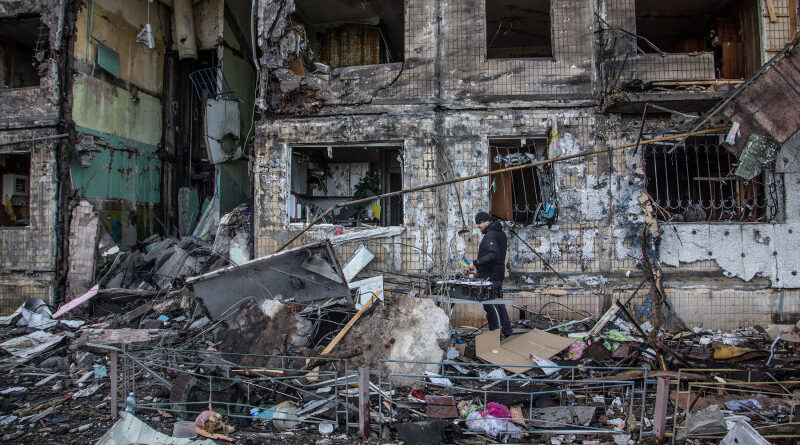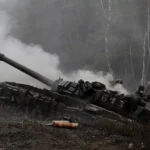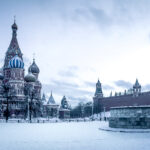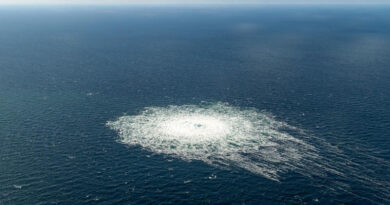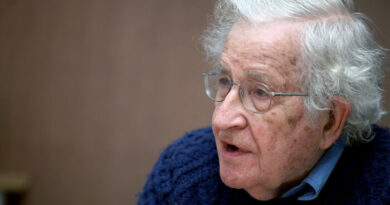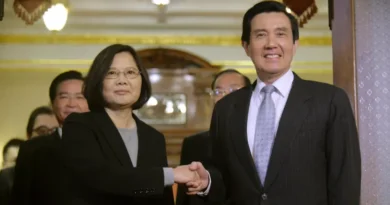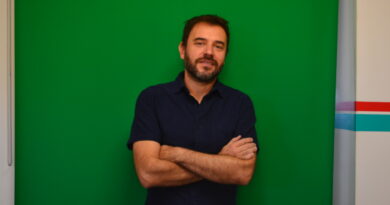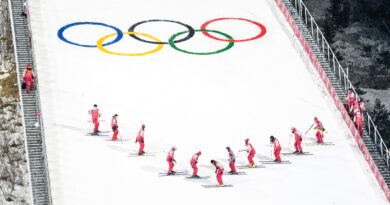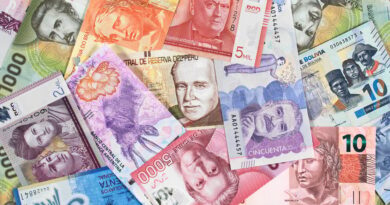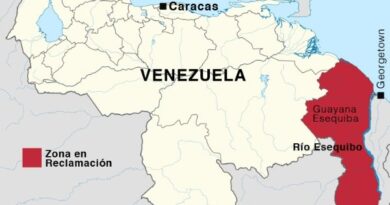The Ukrainian tragedy
Creating the most favorable conditions for the Ukrainians, all of them, to decide sovereignly and come to an agreement, should be the priority of a movement for peace, more necessary and urgent than ever in human history.
RAFAEL POCH-DE-FELIU
One of the problems with the war in Ukraine is that we are not facing one war, but several. There is a reactionary war of Russia against Ukraine, open since the invasion of February 2022. There are elements of civil war between Ukrainians since the spring of 2014, caused by the non-recognition of the valuable internal diversity of Ukrainians in their different regions, without which the Russian invasion would have been very difficult, if not impossible. There is a war of hegemonism between NATO and Russia, without which the two previous ones surely would not have come to fruition, sponsored by the United States with its expansionist pressure towards the East since the false closing of the cold war thirty years ago. And there is a warming up of a great global war with China to neutralize its rise as leader of a non-Western pole in the world and of which the war in Ukraine is the prolegomenon.
This multiple dimension of the war explains many of its problems and complexities when it comes to assessing it, including the fact that the roles of David and Goliath, as well as the title of "imperial aggressor", are interchangeable, depending on which war we are talking about. .
At the moment the Russian invasion, with its catastrophic and criminal human bill, is the most serious, but it is increasingly evident that the risks of the war, for the moment by proxy, between NATO and Russia, as well as the fight with China that behind it, they drag us into scenarios of a global conflict in which the number of victims could be counted not in tens of thousands as now, but in hundreds of millions.
El French Newsletter of nuclear scientists, a respectable institution founded by Einstein in 1947, has placed its famous "doomsday clock" on its count toward the shortest disaster since it was created, ninety seconds, and one of its surveys among specialists, among They were leading figures in the United States Army and international experts, and a few months ago already gave the unequivocal result that all these people take very seriously the possibility that the current conflict degenerates into a nuclear war.
Even more disturbing is the phenomenon of banalization of this danger that is observed in the media and among politicians, particularly Europeans whose geographical area is the first scenario to suffer the disaster. The idea that “Putin is bluffing” is insane and reckless at its core: it ignores the entire history of Cold War nuclear power relations, as well as the central fact that even if a nuclear exchange were unlikely, its mere possibility is too catastrophic and terrible to be admitted as such.
On December 5, two Russian strategic aviation bases, in Ryazan and Saratov, 300 miles from the Ukrainian border, were attacked with Ukrainian missiles modified and modernized by NATO. The Ukrainian attack was "legitimate" in the sense that planes have taken off from these bases and launched missiles at Ukraine, but it must be understood that it is not about legitimacy, but about survival. To imagine that a strategic US military base was attacked by Mexico with the help of Russia or China is chilling, but in this case the news went largely unnoticed in the West, not in Russia.
The shipment of Western heavy weapons, including aviation, to Ukraine, which in March was ruled out by President Biden – “because that would be called a third world war”, he said – is now in all the calculations. The European Parliament has called to overwhelm Russia militarily with those resources provided by NATO. The actual battle plan in Europe of the Western military alliance during the cold war is completely ignored.
Because of the conventional superiority of the USSR, Moscow's plan in the event of a war was to reach the Pas de Calais within 48 hours with its armored divisions, which were then stationed in East Germany, Czechoslovakia, and Hungary. In order to contain that predicted roll, NATO's war plan was to stop it with tactical nuclear weapons to gain the two or three weeks necessary for the bulk of the United States army to land in Europe and balance the situation. Now, on Russian TV, such a scenario is openly talked about, but vice versa, in the event that the Russian Army is overwhelmed by NATO, whose military superiority is overwhelming and its military budget, added, more than seventeen times that of Russia.
Currently the military initiative on the battlefield is held by the Russians, with a slow advance aimed at consolidating their occupation of around 20% of the national territory of Ukraine. The Kiev government advocates the reconquest of all this and announces an offensive in the spring to reconquer Crimea, something completely impossible unless NATO gets directly involved as requested by the most foolish partners such as Poland and as a provocation in Moldova, for example, would encourage. In this scenario, if North Atlantic missiles fall on Crimea or Moscow, one must be aware that they could also fall on Brussels, Warsaw or Bucharest. And from there, anything would be possible.
So what? Resign yourself to Ukraine being defeated in order to prevent a major disaster? The answer is to negotiate a ceasefire, as the Chinese say, and from there seek a compromise that would guarantee Ukraine's ultimate security, that is, guarantees that Russia will not invade again in the future. For that, Ukraine's security should be part of an integrated European security scheme that includes Russia. That is to say: there is no choice but to return, one way or another, to the idea that was agreed upon at the end of the cold war and that was embodied in the Charter of Paris for the new Europe signed at the Elysee in November 1990 and it was reflected in an infinity of verbal promises made then to Mikhail Gorbachev. It is difficult for Washington to agree to that because with such a security formula, the United States would be left out of the continent. That was precisely the reason for NATO's provocative expansion to the east in the last thirty years, because creating new tensions with Russia justified NATO's raison d'être and Washington's political-military dominance that it leads. with him.
For such a development to be possible, France and Germany would have to distance themselves from the warlike path of the United States. The Americans should withdraw from Europe and the European Union should not be drawn into the "civilization war", with the demonization of Putin and Russian culture - something unprecedented in the cold war, not even against Stalin - nor participate in the encirclement adversary nuclear powers such as Russia and China.
Ukraine should be neutral, its government should recognize the country's diversity and stop imposing the dominant Ukrainian identity in Galicia on the whole of the country as “unique and authentic”, especially in the South and East of Ukraine where the population does not accept it. Even roundly condemning the disaster of the Russian invasion, that Ukrainian population does not deny Russian culture, the Russian language and the Orthodox religion as part of their Ukrainian identity. That “other Ukraine” must be recognized by the Kiev government on an equal footing, sewing up the fracture that the 2014 regime change consummated, encouraged by Washington and the European Union. The Russian invasion has changed many things in the consciousness of all Ukrainians, but that fact is fundamental and if it is not recognized and resolved, it will remain a burden for the future, whatever the outcome of the war.
Under these conditions, Russia would have no difficulty in accepting a Ukraine integrated into the European Union and not designed against it by its adversaries, as it did not have in 1991 when the USSR dissolved, after its voluntary withdrawal from Eastern Europe.
It is necessary to get used to the idea that in any future scenario that does not imply a great war, Crimea will continue to be Russian, although a referendum could be held there with international guarantees to legitimize this change. In Donbas, too, the population could be allowed to vote, with credible international guarantees...
It must be understood that the different and contradictory popular desires that the Ukrainian tragedy has contained all these years are united by the common denominator of their manifest contempt, both for the local oligarchies and for the great powers that determined the development of events.
It is necessary to attend to the interests of the population concerned when they declared themselves in the polls overwhelmingly against the country's entry into NATO (2008, coinciding with the "invitation" of the Alliance's Bucharest Conference), against carrying out maneuvers NATO military along the Russian borders (January 2022), against the privatization and sale of land to foreigners (repeatedly), in favor of the fall of the corrupt government of President Yanukovych (the Kiev Maidan, in 2014) , in favor of the annexation to Russia (the inhabitants of Crimea, 2014) or when they took up arms, either to defend their homes and schools bombed in the summer of 2014 by the "anti-terrorist operation" of the new pro-Western government in Kiev that sent against the Donbas to its far-right battalions, well to combat the Russian military invasion from February 2022 with such disastrous results. All these genuine popular desires have been despised by NATO, by Russia, by the oligarchy, by the multinationals, and they should be able to express themselves once a ceasefire is established and the minimum of normality for it is recovered. Creating the most favorable conditions for the Ukrainians, all of them, to decide sovereignly and come to an agreement, should be the priority of a movement for peace, more necessary and urgent than ever in human history.

